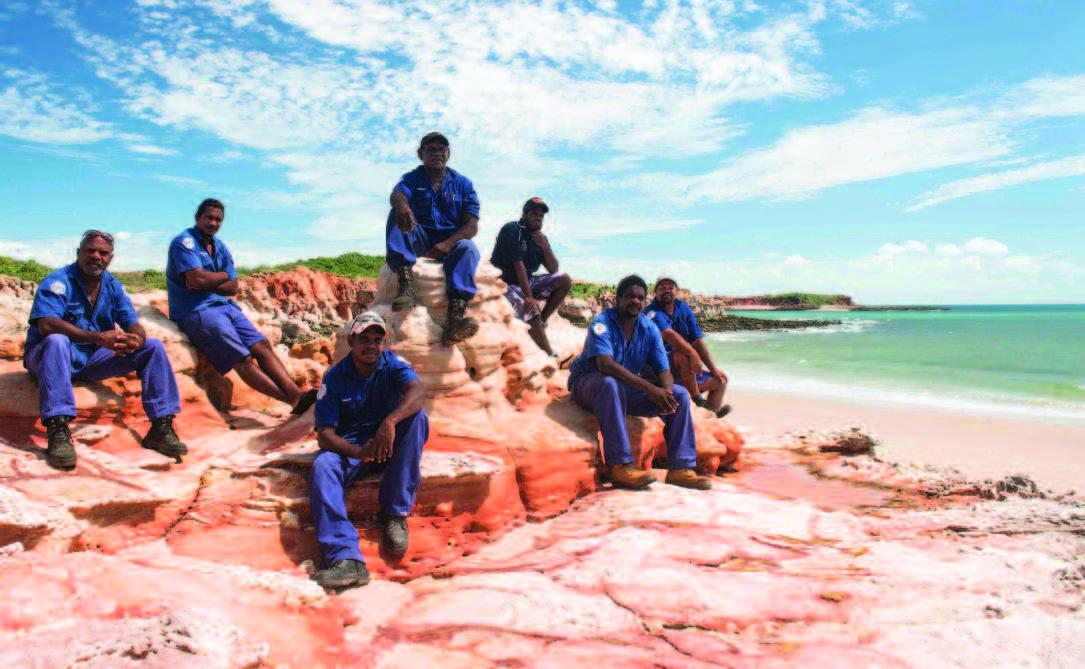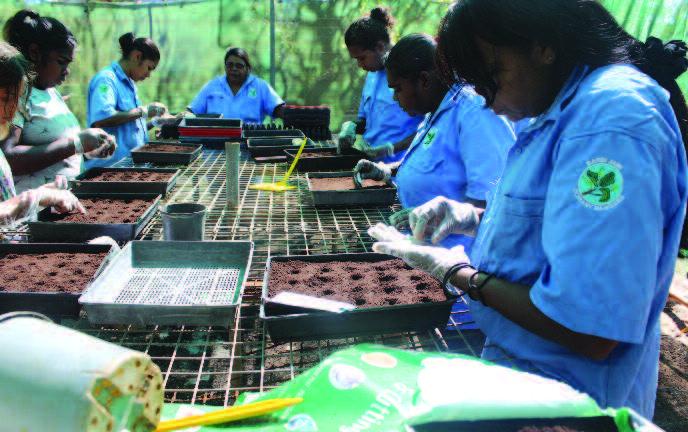
2017 - LOOKING AFTER LAND & SEA
When visiting the Dampier Peninsula, it is impossible to ignore the beauty of the area, from the bluest of blue oceans, to the reddest of rocks and the white sandy beaches. For the Bardi Jawi Aamba (Men) and Oorany (Women) rangers, this spectacular country is not only their home but their office.
The rangers are tasked with protecting and managing the land and sea country on the northern end of the Dampier Peninsula and achieve this by using a combination of traditional knowledge and modern science. Facilitated by the Kimberley Land Council, the Bardi Jawi ranger group was the first ranger team to commence work in the Kimberley ten years ago.
The group was joined by the female ranger group, the Bardi Jawi Oorany rangers in 2011. The Nyul Nyul ranger group is also located on the peninsula, looking after land south of Bardi Jawi country.
Bardi Jawi Indigenous Protected Area Coordinator, Daniel Oades, said all ranger groups have a strong focus on developing long-term management plans that will maintain the biodiversity and cultural heritage of the area. ‘On the Dampier Peninsula we are extremely lucky to have some of the most beautiful and pristine land and sea that you will find anywhere in Australia,’ Mr Oades said. ‘We have an abundance of native species, and it is our task to see that this unique part of the Kimberley continues to thrive.’
In 2013 The Bardi Jawi people declared an Indigenous Protected Area (IPA) across parts of their country, which is an agreement with the Australian Government to promote biodiversity and cultural resource conservation. Mr Oades said the male and female ranger groups work together on a number of projects to ensure all land conservation management and IPA targets are met.
‘Our rangers are extremely proud of their culture and land, and we welcome visitors to learn about our mob, as well as the ongoing conservation work occurring across the Dampier Peninsula,’ he added. The Bardi Jawi ranger groups are part of the wider Kimberley Land Council facilitated Kimberley Ranger Network. The Network includes 13 different ranger groups located across the Kimberley and employs around 100 Indigenous rangers.
The rangers work as land and sea managers, resulting in many environmental, social and economic benefits.
Ranger tips when travelling on country:
· Make sure you have permission to visit certain areas. Speak to Traditional Owners, your accommodation provider and information centres.
· Respect sites of cultural significance and observe advice about restricted areas.
· Take rubbish when you leave and dispose of rubbish appropriately.
· Observe fire warnings and advice.
· If you are visiting Kooljaman, head a long to a Bardi Jawi ranger cultural education session to learn more about traditional land management.
· And finally, enjoy!
The Kimberley Ranger Network is supported by Commonwealth Working on Country funding.

